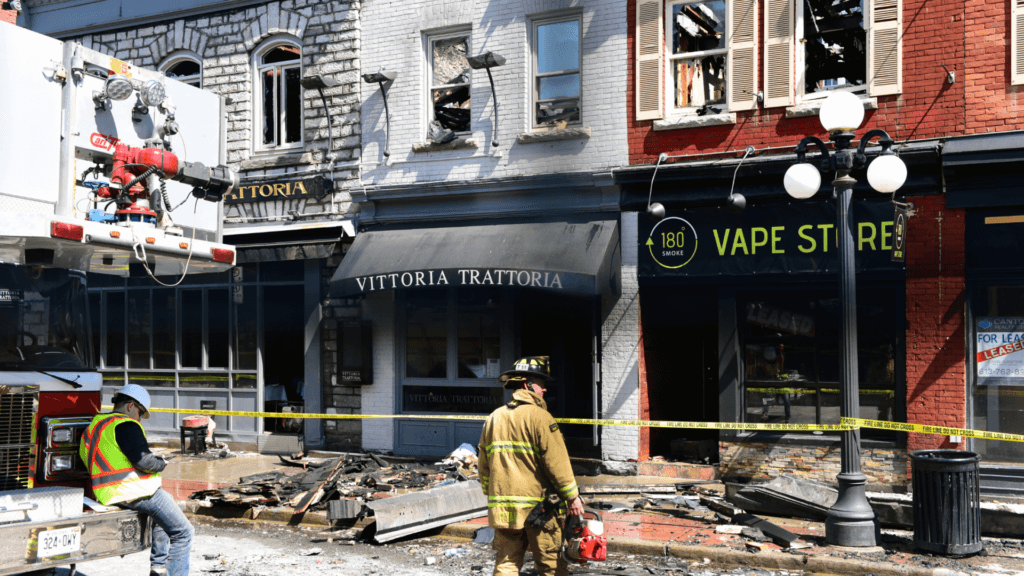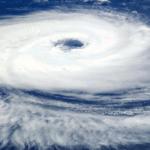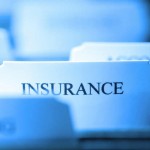
Starting a business can be an incredibly fulfilling experience for those looking to bring their products or services to the masses. While this can be an exciting time for owners, many items must be taken care of before the company opens its doors – particularly, obtaining the proper insurance coverage. No matter how smoothly a business runs, the unexpected can (and often will) happen. Because of this and many other factors, business and commercial property owners must have the right insurance policies in place and know what’s included in their commercial property damage coverage.
Commercial Property Damage Coverage
Commercial property damage insurance works to provide a safety net for owners when an unexpected event causes damage to the premises itself, as well as items located within the property, including equipment, furniture, product inventory, supplies, and fixtures, among other items. This specific insurance can also cover the costs associated with the repair or replacement of stolen, damaged, or destroyed property.
Business owners that lease their space to run their operations will need to review their lease obligations in terms of insurance. This is because, in some cases, tenants will be solely responsible for insuring the building or will be required to continue to pay rent even if the space is inoperable. Reviewing the lease agreement and the associated insurance obligations with legal counsel can help to confirm that the selected commercial coverage is sufficient.
There are three different types of commercial property damage policies. Each offers protections against varying causes of damage or loss, including:
- Basic form policies: These insurance policies provide the least amount of coverage out of the three. A basic form policy covers damage caused by fire, windstorms, hail, lightning, explosions, smoke, vandalism, sprinkler leakage, aircraft and vehicle collisions, riots and civil commotion, sinkholes, and volcanoes.
- Broad form policies: Broad form policies cover the causes of loss included in basic form as well as damage from leaking appliances, structural collapse, falling objects, and the weight of ice, sleet, and/or snow.
- Special form policies: Special form policies provide the most comprehensive coverage for a commercial property, insuring against damage from all causes of loss except those specifically excluded in the policy. Most of these policies exclude damage from floods, earth movement, war, nuclear disaster, wear and tear, and insects or pests.
Most commercial property policies can provide replacement cost coverage, actual cash value coverage, or a combination of both. These include:
- Replacement cost coverage: Replacement cost coverage will pay to repair or replace the damaged property at its current cost. This means the policy will pay enough to rebuild the building if necessary and replace the property with new items, even if the cost is more than what was originally paid.
- Actual cash value coverage: Actual cash value coverage pays for the replacement cost minus depreciation. Depreciation is a decrease in value because of wear and tear or age. If a policyholder has actual cash value coverage, the policy might not pay enough to fully rebuild the business.
Events Excluded From Commercial Property Damage Coverage
While commercial property damage insurance can cover a broad range of events that cause direct physical damage to a business, many items are excluded from coverage. In these cases, owners may need to look into obtaining additional insurance policies to ensure they are not left with any gaps in coverage.
Some specific items not covered under commercial property damage insurance include:
- Commercial vehicles: If a business utilizes company cars, vans, or trucks for its operations, commercial property insurance will not cover the damage to these commercial vehicles should an accident occur. Thus, business owners will need to obtain a separate insurance policy to cover the vehicles owned by the company.
- Flood damage: If a business is located along the coast or in an area prone to flooding, commercial property damage coverage will not be triggered in the event the property floods. This can be confusing, as most commercial property policies will offer coverage for water damage but not flood-related events. Business owners will need to purchase a separate flood insurance policy to protect their space from the costs of repairing flood damage.
- Damage to customer property: In the event a client or customer’s property is damaged, business owners will need to have a general liability insurance policy to cover it. This type of insurance will not only cover the costs associated with the damage to property belonging to a business’s customers and clients, but it will also help with legal costs in the event the business is sued for causing the damage.
- Business interruption: If an unforeseen event causes damage to a commercial property that leaves the business inoperable, business interruption insurance can help cover company expenses while the premises is under repair. This insurance can help with loss of income, payroll, and other day-to-day expenses the business will incur.
- Equipment breakdown: If the equipment used to operate the business breaks down or malfunctions, company owners will need to have a separate equipment breakdown policy on hand. This coverage can be added as an endorsement to most commercial property damage policies.
The Cost of Commercial Coverage
Many factors are considered when it comes to determining how much a policyholder must pay for commercial property insurance. Ultimately, it will largely depend on the value of all the business’s assets, including the property itself. Other factors that determine the cost of coverage are often based on risk, such as:
- The location of the property: If the area the business is located in is prone to storms and other natural disasters, policyholders may have to pay higher premiums.
- The materials used to build the property: If the building was constructed with fireproof materials or if it has new or upgraded electrical wiring, plumbing, and HVAC systems, these factors will impact the cost to insure the property.
- The type of business: If the business’s industry carries increased risks, insurance will likely come at a higher cost. For example, a realtor’s office generally carries less risk than a restaurant, repair shop, or warehouse.
- The proximity to fire and police stations: If the business is located near or far from a fire hydrant, fire station, or police station, this could impact the cost of coverage. The same is true regarding the alarm and safety systems the business has in place.
Commercial Property Insurance Claim Attorneys
Having the right insurance coverage in place can be a huge relief to business owners. Unfortunately, despite having these protections in place, insurance companies may take advantage of their policyholders when a claim is filed. Many insurance companies use bad faith practices to make a profit off of the misfortunes of their policyholders. In these cases, insurers may attempt to delay the payment of a claim, grossly underpay a claim, or flat-out deny a valid claim. When this happens, an insurance claim lawsuit will likely need to be filed.
At Raizner Slania, our experienced commercial property insurance claims attorneys know all too well how these egregious actions can be detrimental to business owners trying to get back on their feet after a disaster. If your commercial property damage claim has been wrongfully denied, delayed, or underpaid by your insurance carrier, we can help.


